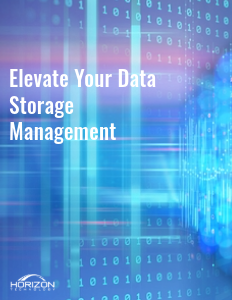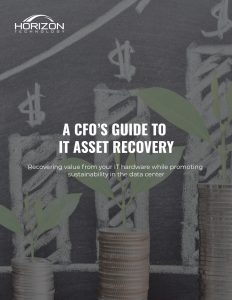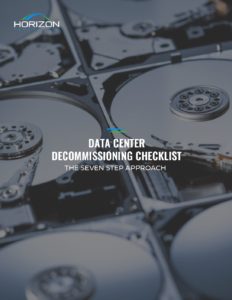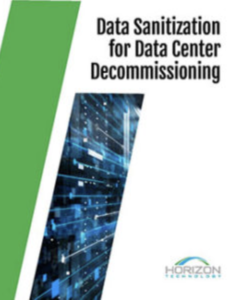You have potentially millions of dollars of hardware deployed in your data center. So when it comes time to retire a piece of equipment, why do so many data center operators voice reticence about redeploying or reselling their used assets?
The polling data on industry apprehensions around reuse and remarketing is conclusive. According to the latest annual survey of more than 5,000 IT professionals conducted by Super Micro, asset lifecycle management (and, by extension, value recovery) remains way down the priority list for data center operators. By contrast, performance utilization and total cost of ownership (TCO) rank at the top.
While this may be the reality, logically it doesn’t stack up—life cycle management and total cost of ownership are far from mutually exclusive. In fact, the effective management of IT asset life cycles is shown both to drive up performance and lower TCO.
Nonetheless, this wariness toward reuse and remarketing among data center operators surfaces in very real ways. While 37% of respondents report redeploying assets internally, that means more than six in ten IT professionals neglect the opportunity. And not even one in four (22%) look to resell IT equipment on the secondary market.
So what are the major factors driving this deep-seated resistance to reuse and resale? In our experience, they fall into five main camps:
#1 Lack Of Operational Visibility
Perhaps the most challenging feature of hardware asset management (HAM) is the time it takes to do well. Even with the most user-friendly software and strong processes in place, HAM is ultimately a form of accountancy—and, as any senior leader knows, it is never easy to get anyone (other than the finance department perhaps) energized around the prospect of accounting.
Counteract this tendency by building a culture in your data center that values tracking and counting. Be sure to implement clear processes for entering items within your configuration management database (CMDB) and regularly cross-check the entries in your system against physical inventory audits. Your CIO needs to be the number one cheerleader here.
Ultimately the effort will pay off, though it may not feel so at the time. Increased visibility will allow you to more confidently (and regularly) analyze the hardware assets you have under management.
#2 Increasingly Hybrid Data Center Environment
Even with a strong company culture around hardware asset management, the rise of hybrid cloud increasingly muddies the waters. As enterprise vendors and cloud providers tempt you with the allure of outsourced hardware, it can be difficult to maintain a clear sense of ownership over the equipment that remains yours.
That’s why it’s important to devise (and sustain) a clear strategy for IT asset management inside your data center. This strategy should be owned by your CIO, regularly reviewed, and built for the long term.
Aim to incorporate best practices, such as
- Maintaining targets for hardware utilization that are pegged at or above industry benchmarks
- Designing a life cycle management plan for each hardware asset that starts at the point of initial deployment.
- Setting (and monitoring) energy saving goals for your data center (ask your equipment vendors for assistance here)
- Exploring the opportunities offered by the ongoing development of open hardware
Hardware is too valuable these days to simply overlook in the hybrid shuffle and dispatch unthinkingly to the recycler. Partner with an IT asset recovery expert who will work with you to ensure you’re not leaving value on the table.
#3 Persistent Data Security Concerns
With the eye-watering cost of lawsuits and the devastating publicity that can arise from data breaches, nobody wants to be the person who lost the box of hard drives or failed to properly purge the media of its data. Better to destroy data-bearing media than run the risk of falling foul of an all too human error, right?
Of course, you’re correct to be militant about data security, but destruction is almost never the only or best course of action.
Work with an asset recovery firm that offers deep expertise in information security. They will partner with you to understand the specific data profile of your storage assets and implement a rigorous workflow for securely purging end-of-use media so it’s ready for reuse.
#4 Existing Vendor Syndrome
We often hear that data center operators already have an IT asset recovery partner and are not in the market for looking elsewhere. You’re happy with what you’ve got, right.
But take a moment to look around and ask yourself a few questions:
- Is your existing vendor truly putting your best interests first?
- Do they have the depth of industry knowledge necessary to propose custom (and creative) solutions for your data center needs?
- Do they have the industry relationships in place to maximize returns for your data center hardware?
You’ll only know if you ask.
#5 Mounting Time And Resource Constraints
In the age of COVID-19, purse strings are tight and time is a precious commodity. Dealing with physical hardware increasingly feels like a distraction.
The apprehension you feel may be real, but putting off hardware asset management is only storing up headaches for later. Don’t delay:
- Schedule hardware maintenance as part of your asset management plan.
- Plan intelligently for hardware refreshes, spaced around key projects and workloads.
The upsides of well-planned technology refreshes are real. “Optimized hardware refresh cycles reduce e-waste by over 80% and achieve 15% better performance while lowering acquisition costs by 44%,” according to the Super Micro report.
The time you invest proactively in asset maintenance and upgrades will save you head scratching down the road.
Make It Easy On Yourself
Strategically implemented, a CIO-approved program for asset life cycle management will bring more control, better performance, and improved TCO to your data center hardware—including options for secure reuse and resale compliant with state and federal regulation.
Benefit from a trusted partner who will work closely with you to understand your needs and put your best interests first.
Find out more about how Horizon Technology can spare you a headache while helping you get more out of your data center hardware.











